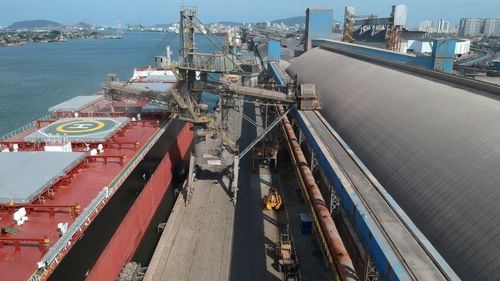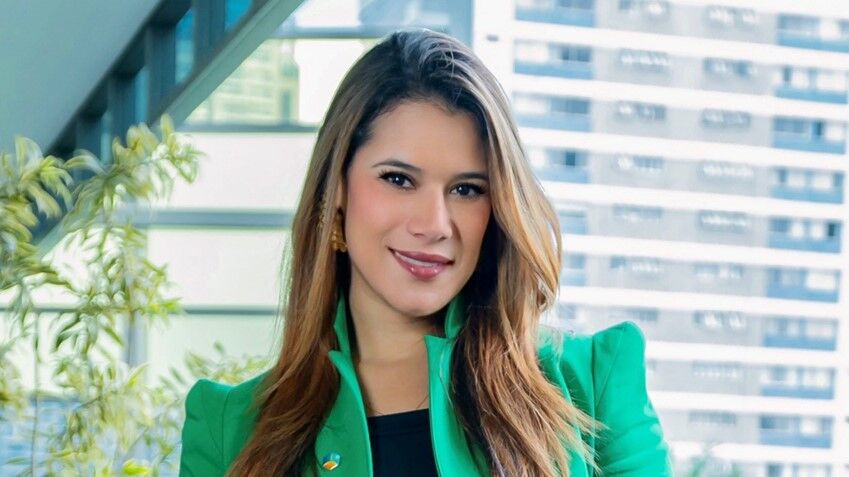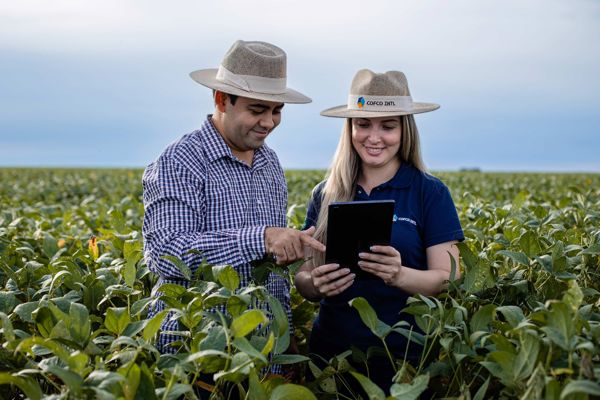
Carolina, COFCO’s commercial director for grains and oilseeds on being a manager, mother and a responsible citizen
Blockchain, artificial intelligence and a constant stream of digital innovation are transforming the commodities trade. But for Carolina Hernandez, COFCO’s commercial director for grains and oilseeds in Brazil, technology will only complement human relationships, not replace them.
“I totally embrace the digital revolution which currently transforms our industry,” she says.
“But the reality of my team, and my daily work is that human interactions are still at the heart of everything we do.”
Her people and relationship skills help explain Carolina’s rise through the ranks at COFCO International to lead one of the company’s most strategic divisions. Having grown up in a tight-knit family, surrounded by brothers and cousins, the young Colombian says she gathers strength from her closest people.
But despite her strong family roots, as a young woman, Carolina did not shy away from making independent choices. Instead of joining her family’s successful poultry business, she decided to study business and economics away from home, and then take on a job in a different country.
“I wanted to prove myself, find something that would shape me and define me properly,” she explains. “A job in the family business does not mean you have earned it - I thought taking the easy path could spoil me.”

COFCO's Terminal 12A port in Santos. COFCO is one of the top exporters of grains and oilseeds from Brazil and also has significant sugar, coffee and cotton businesses in Brazil.
The safe and the risky
From her master’s studies at the University of Los Andes in Colombia’s capital, Bogota, Carolina went straight into trading, as a trainee in the international program at another major international agribusiness. From Bogota, the company moved her to Sao Paulo in Brazil, where she joined the commercial team for proteins and vegetable oils.
For more than seven years, now, Carolina has been with COFCO International. In her current role, she manages an indirect team of more than 500 people who originate, process and trade millions of tonnes of soybeans, corn and wheat from Brazil to the world every year.
Brazil is one of the most important countries on COFCO’s map. The team has to constantly adapt to global markets and change. To succeed COFCO managers have to be able to balance external and internal pressures. The Brazil team has recently undergone major restructuring looking to set up the proper foundations for further growth.
How does Carolina manage the formidable level of detail and pressure? By staying close to the most difficult aspects of the business.
“I cover six business units including origination, trading, distribution, crush and biodiesel, each with their own particularities and teams,” she says.
“The key for me is to divide my units into what holds a structural margin and what is a pure risk operation. My eves oversee all the units, but my biggest attention goes to the areas requiring careful measurement of risk and reward.”

A Conscious citizen
One of the risks on Carolina’s radar is sustainability. As a manager, mother, and responsible citizen, she says, climate change and biodiversity loss are issues close to her heart.
But the public and private sectors must share the responsibility for change.
“Many farmers in this country are already doing a great job when it comes to improving their sustainability record,” she says. “Now everybody needs to come together to understand their reality, support and incentivise them to do the right thing.”
Looking to the future
Brazil, one of the world’s most important agricultural producers and a critical source of growth for COFCO’s domestic business in China, is “exactly the place where I want to be” she affirms.
Given the country’s potential for further expansion in crops and infrastructure, she says this is where she can make a bigger difference. “I want to seize the opportunity.”
